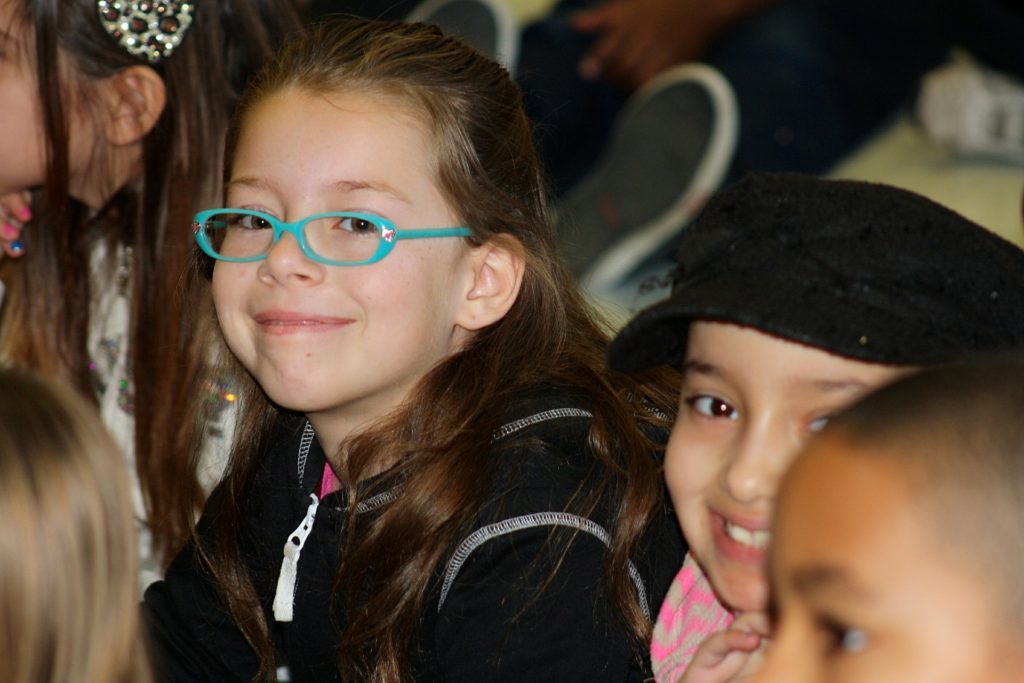August is back-to-school time for kids in East Tennessee, and it’s also National Children’s Vision and Learning Month. The goal of this month-long observance is to raise awareness among parents and educators about the prevalence of undiagnosed or misdiagnosed vision problems among children.
Many children struggle with myopia, or nearsightedness, and it’s estimated that as much as a third of U.S. children are nearsighted. Unfortunately, many children don’t get their eyes checked at all. In fact, the American Academy of Ophthalmology estimates that almost 40 percent of children in the United States have never undergone a vision screening.
This is problematic because any amount of limited vision affects a child’s ability to learn in school, participate in sports, and observe the world around them. Research has linked vision problems with delayed development, poor performance in school and social settings, and low self-esteem. Many children and adolescents learn and perform below their actual competency level because they are limited by vision issues.
An estimated 80% of information presented in school is visual. If children are unable to see well, they will have difficulty following along and concentrating. What may look like laziness, a learning disability, or even ADHD may actually be a vision problem.
However, if problems are detected early with a comprehensive eye exam, it’s usually possible to treat them effectively and prevent years of struggle.
When & How Should Children’s Vision Be Examined?
Vision screenings are often offered at schools or by pediatricians, but these standard eye-chart screenings routinely miss many vision problems. And kids often can’t tell that they’re not seeing correctly or won’t complain of not being able to see. A comprehensive eye exam is the most accurate way to detect if a child or teen has a vision problem.
A comprehensive eye exam involves the use of eye drops to dilate the pupil, which enables a more thorough investigation of the overall eye health and the visual system.
The American Academy of Ophthalmology and the American Association for Pediatric Ophthalmology and Strabismus recommend the following: exams:
Newborn: An ophthalmologist, pediatrician, family doctor or other trained health professional should examine a newborn baby’s eyes and perform a red reflex test, which is a basic indicator that the eyes are normal. If the baby is premature or has a high risk for medical problems for other reasons or has signs of abnormalities, then an ophthalmologist should perform a comprehensive exam.
Infant: Between six-months and age 1, an ophthalmologist, optometrist, pediatrician, family doctor or other trained health professional should do a second screening for eye health.
Preschooler: Before beginning school, a child’s vision and eye alignment should again be assessed annually by an ophthalmologist, optometrist, pediatrician, person trained in vision assessment of preschool children.
School age—age 5 to 18: Comprehensive eye exams should be performed annually by an ophthalmologist or optometrist. Nearsightedness (myopia) is the most common vision problem in this age group, which can be corrected with eyeglasses.
Some children also have difficulty with eye focusing, eye tracking, and eye coordination. The only way to be sure your child can see clearly is a with comprehensive vision exam. If an alignment problem or other eye health issues is suspected, the comprehensive exam will inform the ophthalmologist or optometrist about which course of corrective action is best to take.
The American Academy of Ophthalmology advises parents to also seek a comprehensive eye exam if:
- The child fails a vision screening.
- The child is referred by a pediatrician or school nurse.
- The child has complained about their vision, or displays abnormal visual behavior like squinting in order to see clearly, excessive blinking or rubbing the eyes, or covering one eye.
- The child is at risk for developing eye problems from other health issues, such as juvenile diabetes.
- The child has a family history of amblyopia, strabismus, retinoblastoma, congenital cataracts or congenital glaucoma.
- The child has a learning disability, developmental delay, neuropsychological condition or behavioral issue.
Annual eye exams are as important as annual wellness exams when it comes to your child’s overall health and wellbeing. The beginning of the school year is a great time to schedule a complete eye exam for the children as well as the adults in your household.
East Tennessee Eye Surgeons is doing a back-to-school special for the whole family during the month of August. Get a complete single vision pair of glasses for $99.00 using select frames and within certain prescription parameters. (No Insurance or other discounts applicable.)
East Tennessee Eye Surgeons specializes in the diagnosis and treatment of common and more complex eye diseases for people of all ages. With two locations at 7800 Conner Road in Powell and 744 Middle Creek Road, Suite 200 in Sevierville, East Tennessee Eye Surgeons delivers the highest quality eye care in an exceptional setting. Visit our website to learn more about us, or call us at 865-546-1464 (Powell) or 865-908-7008 (Sevierville).

